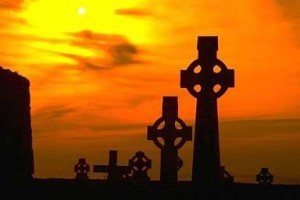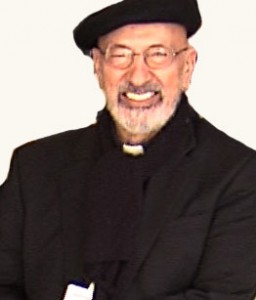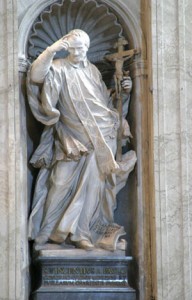.
 see also Pope Benedict’s teachings on St. Gertrude on the Discerning Hearts Holy Women page
see also Pope Benedict’s teachings on St. Gertrude on the Discerning Hearts Holy Women page
(1256-1302 A.D.) Few men have merited the title, “the Great”; fewer women. I know of only one nun so honored, St. Gertrude of Helfta, a mystic whose spiritual writings have remained influential up to the present.
Nothing is known of this German woman’s family background. When five years old, she was entrusted to the sisters of Helfta Abbey to be educated. From a very young age she gave evidence of her brilliance and quickly outstripped her companions. In her teen years she asked to join the community. Therefore, she probably spent her whole life from childhood on within the abbey walls.
Her love for secular studies made the common life wearisome, pride and vanity ate away at her soul and she soon became an unhappy young woman until Christ appeared to her. The day was branded in her memory, it was in her 26th year, when as she says “in a happy hour, at the beginning of twilight, thou O God of truth, more radiant than any light, yet deeper than any secret thing, determined to dissolve the obscurity of my darkness.” From then on her biographer tells us “she became a theologian instead of a grammarian.” She did not give up her intellectual ardor but now, all her labors were for her sisters, to cure what she termed “the wound of ignorance”. Her many gifts and mystical graces did not prevent her from giving herself wholeheartedly to the common life with its joys and sorrows. In fact many of her special graces came to her as she took part in the ordinary routine of convent life. She felt keenly for those whose burdens involved them in distracting duties, for example those responsible for meeting the debts of the monastery.
She prayed that they might have more time to pray and fewer distractions. The Lord’s answered “It does not matter to me whether you perform spiritual exercises or manual labor, provided only that your will is directed to me with a right intention. If I took pleasure only in your spiritual exercises, I should certainly have reformed human nature after Adam’s fall so that it would not need food, clothing or the other things that man must find or make with such effort.”
Many of her writings are lost, but fortunately she left to the world an abundance of spiritual joy in her book The Herald of Divine Love, in which she tells of the visions granted her by our divine Lord. She wrote this excellent, small book because she was told that nothing was given to her for her own sake only. Her Exercises is an excellent treatise on the renewal of baptismal vows, spiritual conversion, religious vows, love, praise, gratitude to God, reparation, and preparation for death.
She began to record her supernatural and mystical experiences in what eventually became her Book of Extraordinary Grace (Revelation of Saint Gertrude), together with Mechtilde’s mystical experiences Liber Specialis Gratiae, which Gertrude recorded. Most of the book was actually written by others based on Gertrude’s notes. She also wrote with or for Saint Mechtilde a series of prayers that became very popular, and through her writings helped spread devotion to the Sacred Heart (though it was not so called until revealed to St. Margaret Mary Alocoque).
Gertrude is inseparably associated with the devotion to the Sacred Heart. The pierced hear
t of Jesus embodied for her the Divine Love, an inexhaustible fountain of redemptive life. Her visions and insights in connection with the Heart of Jesus are very enlightening. In one such intellectual vision, she perceived the unceasing love of Christ for us in two pulsations of his Heart – one accomplished the conversion of sinners, the other the sanctification of the just. Just as our own faithful heart keeps right on whether we advert to it or not, these pulsations will endure till the end of time despite the vicissitudes of history.
Our Lord wishes people to pray for the souls in purgatory. He once showed Gertrude a table of gold on which were many costly pearls. The pearls were prayers for the holy souls. At the same time the saint had a vision of souls freed from suffering and ascending in the form of bright sparks to heaven.
In one Vision, Our Lord tells Gertrude that he longs for someone to ask Him to release souls from purgatory, just as a king who imprisons a friend for justice’s sake hopes that someone will beg for mercy for his friend. Jesus ends with:
“I accept with highest pleasure what is offered to Me for the poor souls, for I long inexpressibly to have near Me those for whom I paid so great a price. By the prayers of thy loving soul, I am induced to free a prisoner from purgatory as often as thou dost move thy tongue to utter a word of prayer.” (more…)
Tags: benedictine, catholic, catholic podcast, catholic prayer, cathollc spirituality, devotion, family, jesus christ, love, mystic of the Church, mystical experiences, sacred heart, sacred heart of jesus, spiritual exercises, spiritual writings, st gertrude, women of the middle ages
This entry was posted on Wednesday, November 16th, 2011 at 2:30 am
You can follow any responses to this entry through the RSS 2.0 feed.
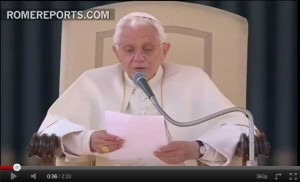 VATICAN CITY, 9 NOV 2011 (VIS) –
VATICAN CITY, 9 NOV 2011 (VIS) –
In his general audience this morning Benedict XVI focused his catechesis on Psalm 119, the longest of the Psalms, constructed as an acrostic in which each stanza begins with one of the twenty-two letters of the Hebrew alphabet. Its subject matter is “the Torah of the Lord; that is, His Law, a term which in its broadest and most complete definition comprehends teaching, instruction and life guidance. The Torah is revelation, it is the Word of God which is addressed to man and which arouses his response of faithful obedience and generous love”, the Pope said.
“The Psalmist’s faithfulness arises from listening to the Word, from keeping it in his heart, meditating upon it and loving it, like Mary who 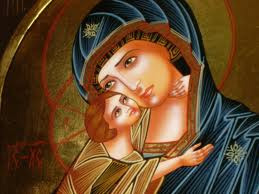 ‘treasured in her heart’ the words addressed to her, the marvellous events in which God revealed Himself and asked for her response of faith”, he explained. The Psalmist describes those who walk in the Law of the Lord as blessed, and indeed “Mary is blessed because she bore the Saviour in her womb, but above all because she accepted God’s annunciation and treasured His Word attentively and lovingly”.
‘treasured in her heart’ the words addressed to her, the marvellous events in which God revealed Himself and asked for her response of faith”, he explained. The Psalmist describes those who walk in the Law of the Lord as blessed, and indeed “Mary is blessed because she bore the Saviour in her womb, but above all because she accepted God’s annunciation and treasured His Word attentively and lovingly”.
Psalm 119 is constructed around this Word of life and blessing. Its central theme is the Word and the Law, and its verses are replete with synonyms thereof such as “precepts, decrees, promises”, associated with verbs such as “to know, to love, to meditate, to live”, the Holy Father explained. “The entire alphabet features in the twenty-two verses of the Psalm, as does the entire vocabulary of the believer’s relationship of trust with God. We find praise, thanksgiving and trust, but also supplication and lamentation; however, all of them are pervaded by the certainty of divine grace and the power of the Word of God. Even those verses most marked by suffering and darkness remain open to hope and are permeated with faith”.
The Law of God, which is “the centre of life”, must be “listened to with obedience but not servility, with filial trust and awareness. To listen to the Word is to have a personal encounter with the Lord of life. … The fulfilment of the Law is to follow Jesus”. Thus Psalm 119 “guides us towards the Gospel”, the Pope explained.
listen to the Word is to have a personal encounter with the Lord of life. … The fulfilment of the Law is to follow Jesus”. Thus Psalm 119 “guides us towards the Gospel”, the Pope explained.
In this context he focused particularly on verse 57: “The Lord is my portion; I promise to keep your words”.
“The term ‘portion'”, he explained, “evokes the partition of the Promised Land among the tribes of Israel, when the Levites were given no part of the territory because their ‘portion’ was the Lord Himself. … These verses are also important for us today, especially for priests, who are called to live from the Lord and from His Word alone, with no other guarantees, no other wealth, and having Him as their one source of true life. It is in this light that we can understand the free choice of celibacy for the Kingdom of heaven, which must be rediscovered in all its beauty and power.
“These verses are also important for the faithful, the People of God who belong only to Him”, the Pope added in conclusion. “They are called to experience the radical nature of the Gospel, to be witnesses of the life brought by Christ, the new and definitive ‘High Priest’ Who offered Himself in sacrifice for the salvation of the world. The Lord and His Word are our ‘land’ in which to live in communion and joy”.
Tags: catholic, catholic podcast, catholic prayer, cathollc spirituality, pope benedict xvi, psalm 119
This entry was posted on Wednesday, November 9th, 2011 at 12:24 pm
You can follow any responses to this entry through the RSS 2.0 feed.
“The holy souls are eager for the prayers of the faithful, which can gain indulgences for them. 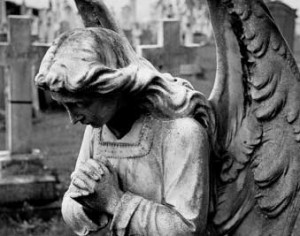 Their intercession is powerful. Pray unceasingly. We must empty purgatory!”
Their intercession is powerful. Pray unceasingly. We must empty purgatory!”
– St. Padre Pio
[powerpress ]
Thursday
O LORD God almighty, I beseech Thee,
by the precious body and blood
of Thy Divine Son Jesus,
which He himself
on the night before His passion
gave as meat and drink to His beloved apostles,
and  He bequeathed His Holy Church
be a perpetual sacrifice and life-giving nourishment
of His  faithful people,
deliver the souls in purgatory,
and but most of all  that soul
which was most devoted to this mystery of infinite love;
in order that it may praise thee, therefore
together with Thy Divine Son,
and  The Holy Spirit,
in Thy glory forever.
Amen.
Tags: catholic, catholic podcast, catholic prayer, cathollc spirituality
This entry was posted on Wednesday, November 2nd, 2011 at 5:57 am
You can follow any responses to this entry through the RSS 2.0 feed.
OK, First…Purgatory, it’s a good thing. While no one knows exactly (though various mystics have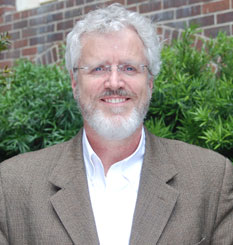 attempted to convey what they experienced by way of their prayer) what will happen there, we do know that if we end up in Purgatory we should be extremely happy since we are most definitely headed for heaven. No one in Purgatory is sent to hell (Yeah!).
attempted to convey what they experienced by way of their prayer) what will happen there, we do know that if we end up in Purgatory we should be extremely happy since we are most definitely headed for heaven. No one in Purgatory is sent to hell (Yeah!).
[powerpress]
First Stop in this exploration is to listen to Deacon James Keating of Institute for Priestly Foramtion with one of the best discussions Bruce and I ever had on the Poor Souls and Purgatory.
So what about praying for the Dead and what does the Church say about the Poor Souls?
What is Purgatory?
The Catechism of the Catholic Church defines Purgatory as follows:
1031 The Church gives the name Purgatory to this final purification of the elect, which is entirely different from the punishment of the damned. The Church formulated her doctrine of faith on Purgatory especially at the Councils of Florence and Trent. The tradition of the Church, by reference to certain texts of Scripture, speaks of a cleansing fire: As for certain lesser faults, we must believe that, before the Final Judgment, there is a purifying fire. He who is truth says that whoever utters blasphemy against the Holy Spirit will be pardoned neither in this age nor in the age to come. From this sentence we understand that certain offenses can be forgiven in this age, but certain others in the age to come (St. Gregory the Great, Dial. 4,39:PL 77,396; cf. Mt 12:31)..
.
.A “final purification” , hmm, sounds like suffering to me, The kind of interior suffering where we have to deal with the painful results of sin inflicted on us by others, but we also with the pain we have inflicted on others…and boy does that hurt. But in this “final purification” (it means just that…final) final healing occurs…an eternal, forever and forever amen, type of healing so we can be  “happy with God forever in Heaven” (to paraphrase the Baltimore Catechism).
The gift of this life here and now on earth is that we can enter into that “purification” now, so that when that moment comes (which we call…death), we can go right to the “pearly gates” and to heaven 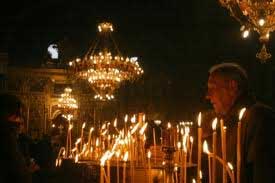 OR we can go to Purgatory to get cleaned up for the beatific vision. St. Teresa of Avila exhorts us to (to paraphrase again) “DO IT NOW, DON’T WAIT”. OK, here are accurate quotes:
OR we can go to Purgatory to get cleaned up for the beatific vision. St. Teresa of Avila exhorts us to (to paraphrase again) “DO IT NOW, DON’T WAIT”. OK, here are accurate quotes:
FROM HOLY SCRIPTURE
There are clear references to Purgatory in both the the Old and the New Testaments. In the Old Testament in 2 Machabees X11 43,46 the Jewish practice of praying for the dead is clearly set out it the following words – ‘It is therefore a holy and wholesome thought to pray for the dead that they may he loosed from their sins.
In the New Testament Our Blessed Lord in Matthew V 26 refers to the prison from which no one is released before his debts are repaid to the last farthing. St. Paul in Cor. 1,3 15 mentions that there are souls who can only be saved ‘yet so as by fire’. It is also stated in Apocalypse XXI, 27 in reference to heaven – ‘There shall in no way enter into it anything defiled”. St. Augustine says that these words clearly indicate that there must be forgiveness of some sins in the world to come, which cannot be in heaven as nothing defiled shall enter therein. Therefore Our Blessed Lord is clearly referring to a place which is neither heaven nor hell and which we call Purgatory.
The learned Protestant, Dr. Jeremy Taylor, writes thus about this matter. ‘We find by the history of the Machabees, that the Jews did pray and make offerings for the dead which appears by other testimonies, and by their form of prayer, still extant, which they used in the captivity. Now it is very considerable that since Our Blessed Saviour did reprove all the evil doctrines of the Scribes and Pharisees, and did argue concerning the dead and the resurrection, yet he spoke no word against this 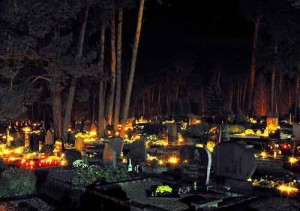 public practice but left it as he found it which he who came to declare to us all the will of His Father, would not have done, if it had not been innocent, pious and full of charity. The practice of it was at first, and was universal; it being plain in TertulIian and St. Cyprian.”
public practice but left it as he found it which he who came to declare to us all the will of His Father, would not have done, if it had not been innocent, pious and full of charity. The practice of it was at first, and was universal; it being plain in TertulIian and St. Cyprian.”
FROM THE FATHERS OF THE CHURCH
“We pray for all among us who are departed believing that this will be the greatest relief for them while the holy and tremendous victim lies present ” – St. Cyril Of Jerusalem
“We make yearly offerings for the dead” – Tertullian
“….. by long punishment for sin to be cleansed a long time by fire and to have purges away all sin by suffering” – St. Cyprian.
‘That you purify me in this life and render me such that 1 may not stand in need of that purging fire” – St. Augustine.
‘No day shall pass you over in silence, no prayer of mine shall ever be closed without remembering you. No night shall pass you over without some vows of my supplications. You shall have share in all my sacrifices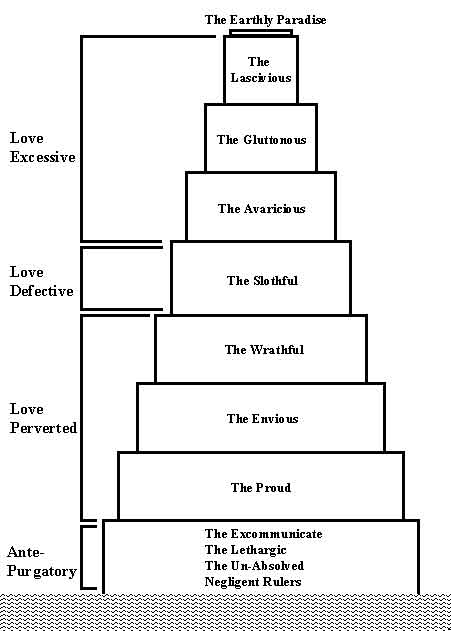 . If I forget you (now that you are dead) let my own right hand be forgotten” – St. Ambrose.
. If I forget you (now that you are dead) let my own right hand be forgotten” – St. Ambrose.
St. Chrysostom in his eighth homily on the Phillipians says that to pray for the faithful departed in the Mass was decreed by the Apostles themselves.
St. Clement of Alexandria says that by punishment after death men must expiate every least sin before they can enter heaven.
Origen in many places and Lactantius teach at large that all souls are purged by the punishment of fire before they enter heaven unless they are so pure as not to stand in need of it.
St. Epiphanius, St. Ephrem, St. Athanasius, Eusebius, St. Paulinus all teach the same.
FROM THE GREAT SAINTS
“No tongue can express, no mind can understand, how dreadful is Purgatory…And be assured that the souls have to pay what they owe even to the last farthing. This is God’s decree to satisfy the demands of justice” –St. Catherine of Genoa.
“Purgatory fire will be more intolerable than all the torments that can be felt or conceived in this life” – Venerable Bede.
“A person may say, I am not much concerned how long I remain in Purgatory, provided I may come to eternal life. Let no one reason thus. Purgatory fire will more dreadful than whatever torment can be seen, imagined or endured in this world.” – St. Caesarius of Arles.
‘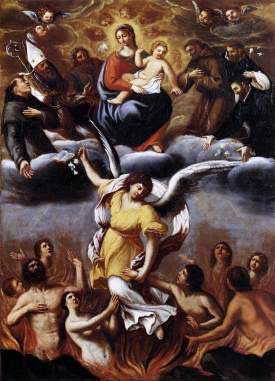 The same fire torments the damned in hell and the just in Purgatory. The least pain in Purgatory exceeds the greatest in this life.” – St. Thomas Aquinas.
The same fire torments the damned in hell and the just in Purgatory. The least pain in Purgatory exceeds the greatest in this life.” – St. Thomas Aquinas.
“My God, what soul would be sufficiently just to enter heaven without passing through the avenging flames’ – St. Teresa of Avila.
‘If we were thoroughly convinced of the torments of Purgatory, could we then so easily forget our parents……. if God would permit them to show themselves we would we would see them cast themselves down at our feet “My children”, they would cry out, “have mercy on us! Oh, do not forsake us!’. – St. John Vianney.
FROM PRIVATE REVELATION
“When I was praying before the Blessed Sacrament on the Feast of Corpus Christi a person enveloped in fire suddenly stood before me. From the pitiable state the soul was in I knew it was in Purgatory and I wept bitterly” – St. Margaret Mary Alacoque.
At FATIMA in 1917 Our Blessed Lady appeared to three children – Lucy, Jacinta and Francesco. The series of appearances by Our Lady to these three children is approved by the Church. Shortly before they took place a young girl from the village had died. She was about fourteen years old. The children asked Our Blessed Mother whether or not she had been saved. The Blessed Virgin advised them that indeed she had been saved but that she would be in Purgatory until the end of the world. (As a result of this revelation many prayers were offered up for her soul and we can only pray that because of this her souls has now been released into eternal glory). From this most authoritative account we can learn three things:
(i) the reality of Purgatory
(ii) great length of time many souls have to stay there
(iii) the tremendous importance of praying for the souls of the departed
Here's some more places you can go if you are still having trouble....
![]() The Burning Truth about Purgatory
The Burning Truth about Purgatory
![]() How to Explain Purgatory to Protestants (James Akin)
How to Explain Purgatory to Protestants (James Akin)
![]() The Roots of Purgatory
The Roots of Purgatory
![]() Purgatory
Purgatory
Tags: baltimore catechism, catechism of the catholic church, catholic, catholic podcast, catholic prayer, cathollc spirituality, Church, Deacon James Keating, doctrine of faith, First Stop, heaven, mystics, poor souls, prayer, purgatory
This entry was posted on Wednesday, November 2nd, 2011 at 12:45 am
You can follow any responses to this entry through the RSS 2.0 feed.
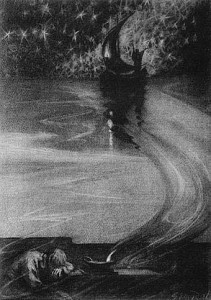 Blessed John Newman’s poem “The Dream of Gerontius” tells the story of a soul’s journey through death, and provides a meditation on the unseen world of Roman Catholic theology.
Blessed John Newman’s poem “The Dream of Gerontius” tells the story of a soul’s journey through death, and provides a meditation on the unseen world of Roman Catholic theology. 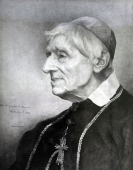
Click here for the full text of the poem
Gerontius (a name derived from the Greek word geron, “old man”) is a devout Everyman.Elgar’s setting uses most of the text of the first part of the poem, which takes place on Earth, but omits many of the more meditative sections of the much longer, otherworldly second part, tightening the narrative flow.
In the first part, we hear Gerontius as a dying man of faith, by turns fearful and hopeful, but always confident. A group of friends (also called “assistants” in the text) joins him in prayer and meditation. He passes in peace, and a priest, with the assistants, sends him on his way with a valediction. In the second part, Gerontius, now referred to as “The Soul”, awakes in a place apparently without space or time, and becomes aware of the presence of his guardian angel, who expresses joy at the culmination of her task (Newman conceived the Angel as male, but Elgar gives the part to a female singer). After a long dialogue, they journey towards the judgment throne.
They safely pass a group of demons, and encounter choirs of angels, eternally praising God for His grace and forgiveness. The Angel of the Agony pleads with Jesus to spare the souls of the faithful. Finally Gerontius glimpses God and is judged in a single moment. The Guardian Angel lowers Gerontius into the soothing lake of Purgatory, with a final benediction and promise of a re-awakening to glory. –wiki
Here is mezzo-soprano Sarah Connelly as the angel offering a beautiful version of “Softly and Gently” (which is the last passage of Edward Elgar’s musical oration of the “Dream of Gerontius”) as he is peacefully being placed into the lake of Purgatory. A stunning work and meditation for this or any day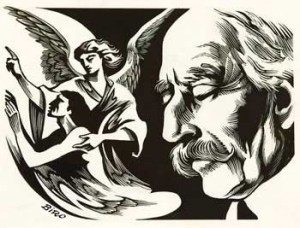
.
SOFTLY and gently, dearly-ransomed soul,
In my most loving arms I now enfold thee,
And, o’er the penal waters, as they roll
I poise thee, and I lower thee, and hold thee.
And carefully I dip thee in the lake,
And thou, without a sob or a resistance,
Dost through the flood thy rapid passage take,
Sinking deep, deeper, into the dim distance.
Angels, to whom the willing task is given,
Shall tend, and nurse, and lull thee, as thou liest;
And Masses on the earth and prayers in heaven,
Shall aid thee at the Throne of the most Highest
Farewell, but not forever! Brother dear,
Be brave and patient on thy bed of sorrow;
Swiftly shall pass thy night of trial here,
And I will come and wake thee on the morrow.
.
Tags: catholic, catholic podcast, catholic prayer, cathollc spirituality, choirs of angels, dream of gerontius, edward elgar, grace and forgiveness, john newman, roman catholic theology
This entry was posted on Wednesday, November 2nd, 2011 at 12:02 am
You can follow any responses to this entry through the RSS 2.0 feed.
During his Angelus on Tuesday, Pope Benedict said “the Feast of All Saints is a good time to lift our gaze from the realities of the world… to the enormity of God, who encompasses all eternity and holiness. “
He said holiness is the vocation of all the baptized, and all the people of God are called to be saints.
The Pope then turned his thoughts to Wednesday’s commemoration of All Souls
[powerpress = “Vatican Radio”]
“From the early days of the Christian faith,†he said, “the Church on earth, recognizing the communion of the whole mystical body of Jesus Christ, has with great respect honored the memory of the dead and offered prayers for them.â€The Pope said “our prayers for the dead are not only useful, but necessary.â€
The Holy Father reminded the faithful to keep the bonds of affection with our loved ones who have died, not only through prayer, but also through actions like visiting cemeteries.
He said this reminds us all that we are meant for another life after death.
see more on the website for Vatican Radio
Tags: all saints, catholic, catholic podcast, catholic prayer, cathollc spirituality, pope benedict xvi, prayer, purgatory, vatican radio
This entry was posted on Tuesday, November 1st, 2011 at 2:42 pm
You can follow any responses to this entry through the RSS 2.0 feed.
Matthew and Margaret Bunson did an incredible job of chronicling all those holy men and women who were brought 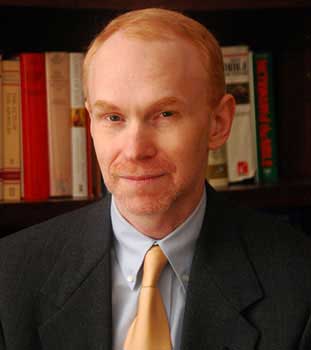 forward by our late great Holy Father, Pope John Paul II. The only thing that even comes close to reading this great book is hearing Dr. Matthew Bunson talk about those tremendous Blesseds and Saints. “John Paul II’s Book of Saints” is truly a treasury of sanctity!
forward by our late great Holy Father, Pope John Paul II. The only thing that even comes close to reading this great book is hearing Dr. Matthew Bunson talk about those tremendous Blesseds and Saints. “John Paul II’s Book of Saints” is truly a treasury of sanctity!
[powerpress]
He was known as the saint-making Pope, and he reinvigorated the world’s devotion to saints. John Paul II, himself a candidate for sainthood, left a treasury of ideals and hope for the future in these “examples of courage and coherence.” He offered us these real lives lived in extraordinary ways as ones to identify with, aspire to, and ask for intercession.
Tags: catholic, catholic podcast, catholic prayer, cathollc spirituality
This entry was posted on Tuesday, November 1st, 2011 at 10:22 am
You can follow any responses to this entry through the RSS 2.0 feed.
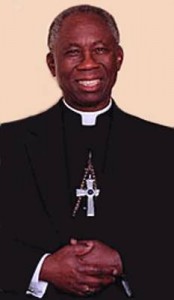 Cardinal Arinze, on September 21, 2011, spoke with priests of the Archdiocese of Omaha on the Sacred Liturgy of the Church and unique and specific role of the priest.
Cardinal Arinze, on September 21, 2011, spoke with priests of the Archdiocese of Omaha on the Sacred Liturgy of the Church and unique and specific role of the priest.
[powerpress]
Francis Cardinal Arinze discussed the Sacred Liturgy as central to the life and ministry of the priest.  He discusses what the Sacred Liturgy is,  he summarizes the ministry of the priest in its three-fold aspect and then sets out how the Sacred Liturgy effects the personal life of the priest.  How he celebrates it matters very much.
This is a very important prospective for all the members of the Church to hear!
Event sponsored by the Pro Sanctity Movement
Tags: Cardinal Arinze, catholic, catholic podcast, catholic prayer, cathollc spirituality, sacred liturgy, the Sacred Liturgy
This entry was posted on Thursday, October 27th, 2011 at 3:23 pm
You can follow any responses to this entry through the RSS 2.0 feed.
Msgr. Esseff continues his reflections in the Chapel of Apparitions located in Paray le Monial, France.
[powerpress]

Msgr. Esseff opens up the special call priests have in bringing the Sacred Heart to the world. Â He also brings forward the prophetic message of Pope Paul VI in 1970 which he warns of the attack of the evil one on the priesthood in particular over a 40 year period. Â The priesthood of this time is truly the pierced heart of Christ.
Be sure to visit “Building a Kingdom of Love”
Tags: catholic, catholic podcast, catholic prayer, cathollc spirituality, Esseff, Paray le Monial, pope paul vi, priesthood, prophetic message, sacred heart, sacred heart of jesus
This entry was posted on Wednesday, October 26th, 2011 at 7:29 pm
You can follow any responses to this entry through the RSS 2.0 feed.
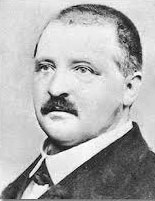 Â VATICAN CITY, 22 OCT 2011 (VIS) – This evening in the Vatican’s Paul VI Hall, the Bavarian State Opera gave a concert in honour of Benedict XVI. The programme included the Ninth Symphony and the “Te Deum” by Anton Bruckner, played by the Bavarian State Orchestra and the “Audi Jugendchorakademie”, conducted respectively by Kent Nagano and Martin Steidler.
 VATICAN CITY, 22 OCT 2011 (VIS) – This evening in the Vatican’s Paul VI Hall, the Bavarian State Opera gave a concert in honour of Benedict XVI. The programme included the Ninth Symphony and the “Te Deum” by Anton Bruckner, played by the Bavarian State Orchestra and the “Audi Jugendchorakademie”, conducted respectively by Kent Nagano and Martin Steidler.
At the end of the performance the Pope rose to thank the musicians.
Listening to Bruckner’s music, he said, “is like finding oneself in a great cathedral, surrounded by its imposing structures which arouse emotion and lift us to the heights. There is however an element that lies at the foundations of Bruckner’s music, both the symphonic and the sacred: the simple, solid, genuine faith he conserved throughout his life”.
“The great conductor Bruno Walter used to say that ‘Mahler always sought after God, while Bruckner had found Him’. The symphony we have just heard has a very specific title: ‘Dem lieben Gott’ (To the Beloved God), almost as if he wished to dedicate and entrust the last and most mature fruit of his art to the One in Whom he had always believed, the One Who had become his only true interlocutor in the last stage of his life”, the Holy Father said.
“Bruckner asked this beloved God to let him enter His mystery, … to let him praise the Lord in heaven as he had on earth with his music. ‘Te Deum laudamus, Te Dominum confitemur’; this great work we have just heard – written at one sitting then reworked over fifteen years as if reconsidering how better to thank and praise God – sums up the faith of this great musician”, Pope Benedict concluded.
“It is also a reminder for us to open our horizons and think of eternal life, not so as to escape the present, though burdened with problems and difficulties, but to experience it more intensely, bringing a little light, hope and love into the reality in which we live”.
Tags: catholic, catholic podcast, catholic prayer, cathollc spirituality, sacred music
This entry was posted on Monday, October 24th, 2011 at 12:16 pm
You can follow any responses to this entry through the RSS 2.0 feed.
“Forgiveness: A Catholic Approach” is exceptional!  Fr. Scott Hurd has penned the book that should be in 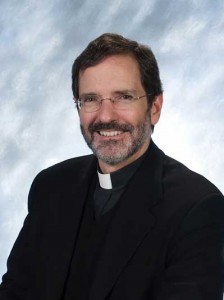 every Catholic home.  To forgive,  without exception, is the hallmark of the Christian life and one of the hardest things to do.  Every single chapter in “Forgivness” is a gem.  Whether it’s is the challenge of “not becoming a doormat”, dealing with our anger over hurts, or reconciling the fact that life isn’t necessarily fair, Fr. Hurd offers timely wisdom from the heart of the Church to the experiences of everyday life in order for us to follow the way of Jesus Christ…and to forgive.  I love this book!
every Catholic home. Â To forgive, Â without exception, is the hallmark of the Christian life and one of the hardest things to do. Â Every single chapter in “Forgivness” is a gem. Â Whether it’s is the challenge of “not becoming a doormat”, dealing with our anger over hurts, or reconciling the fact that life isn’t necessarily fair, Fr. Hurd offers timely wisdom from the heart of the Church to the experiences of everyday life in order for us to follow the way of Jesus Christ…and to forgive. Â I love this book!
[powerpress]
“All of us know that there is more to forgiveness than simply saying “I’m sorry.” In the section entitled, “Hallmarks of Forgiveness,” Father Hurd deftly outlines seven such marks of forgiveness that reflect the teaching and example of Our Lord. In Jesus, we learn how to forgive others as God has forgiven us. Forgiveness is a decision, a process, and a gift.
“Equally challenging today is the question of how to forgive. In Forgiveness: A Catholic Approach we find an entire section on this topic. With priestly wisdom, Father Hurd examines a wide variety of experiences of forgiveness and reconciliation. With examples from Scripture, Church tradition, literature, and his own ministry, he offers a useful ten-step process to aid people ready to make the decision to forgive.”
–Cardinal Donald Wuerl, from the Introduction
You can find “Forgiveness” here
Visit Pauline.org for more information
Tags: catholic, catholic podcast, catholic prayer, cathollc spirituality
This entry was posted on Monday, October 24th, 2011 at 7:21 am
You can follow any responses to this entry through the RSS 2.0 feed.
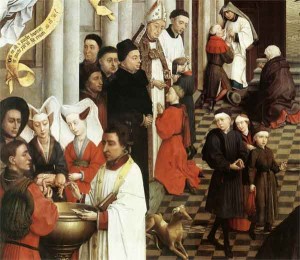 This video shows a very brief overview of the Seven Sacraments of the Christian, Catholic Church. From these sign we receive the graces of salvation.
This video shows a very brief overview of the Seven Sacraments of the Christian, Catholic Church. From these sign we receive the graces of salvation.
The chant is the Easter Octave hymn ‘Aqua Sapientiae’. The lyrics and translation:
Aqua sapientiae potavit eos, Alleluia: firmabitur in illis, et non flectetur, Alleluia:
et exaltabit eos in aeternum, Alleluia, Alleluia.
Confitemini Domino, et invocate nomen eius: annuntiate inter gentes opera eius.
Aqua sapientiae…
He gave them to drink of the water of wisdom, Alleluia: it will become strong in them, and will not be changed, Alleluia: and He will exult them forever, Alleluia, Alleluia.
Acknowledge the Lord, and call upon His name: proclaim His works among the peoples.
He gave them
Tags: Alleluia, Aqua sapientiae, catholic, catholic podcast, catholic prayer, cathollc spirituality, gregorian chant, Seven Sacraments
This entry was posted on Tuesday, October 18th, 2011 at 3:01 pm
You can follow any responses to this entry through the RSS 2.0 feed.
Vatican City, Oct 6, 2010 / 03:54 pm (CNA/EWTN News).- Anticipating Thursday’s celebration of the Feast of Our Lady of the Rosary, the Holy Father called on the faithful to make an effort to rediscover the prayer. He urged Christians to seek intercession, protection and personal encounter with Christ through the “simple but efficient prayer,” especially during the Marian month of October.
Greeting the faithful in 10 different languages during Wednesday’s general audience, the Holy Father spoke of the Rosary as “a particular prayer of the Church and a spiritual weapon for each of us.”
He prayed that the meditation of Jesus and Mary’s life through the Rosary might be, “for all of us, light on the evangelical path of spiritual renewal and conversion of heart.”
Speaking in Portuguese, but referring to all people, he invited families to join together with the Virgin Mary so as to cooperate fully with the salvific designs of God. In Croatian, he said to ask for her intercession and protection for each person and family, exhorting prayers also for vocations to the priesthood and religious life.
In still other languages, 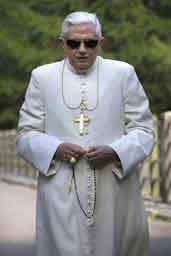 he asked that the faithful “rediscover the value” of the “simple but efficient prayer” of the Rosary “as a way for a personal encounter with Christ.”
he asked that the faithful “rediscover the value” of the “simple but efficient prayer” of the Rosary “as a way for a personal encounter with Christ.”
“October,” he said in the Italian greeting that concluded his public words on Wednesday, “is the month of the Holy Rosary, which invites us to value this prayer so dear to the tradition of the Christian people.”
Addressing some of the special guests at the audience, he said, “I invite you, dear young people, to make of the Rosary your daily prayer. I encourage you, dear sick, to grow, thanks to the recitation of the Rosary, in the trusting abandonment to the hands of God. I exhort you, dear newlyweds, to make of the Rosary a constant contemplation of the mysteries of Christ.” – CNA
Tags: catholic, catholic podcast, catholic prayer, cathollc spirituality, feast of our lady of the rosary, holy father, intercession, month of the holy rosary, prayer, prayer of the rosary, virgin mary
This entry was posted on Sunday, October 9th, 2011 at 8:29 pm
You can follow any responses to this entry through the RSS 2.0 feed.
No surprise to readers and listeners of Discerning Hearts (especially those who follow the teachings of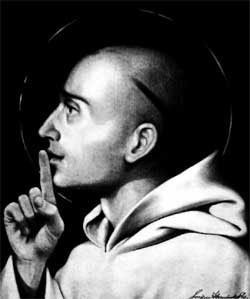 Deacon James Keating)….”Silence is Golden”! Pope Benedict XVI has chosen “Silence and Word” as the theme for World Communication Day.
Deacon James Keating)….”Silence is Golden”! Pope Benedict XVI has chosen “Silence and Word” as the theme for World Communication Day.
Don’t you just love it…earlier we heard from Vatican Radio that the symposium of former theological students of the Holy Father that met with him this past summer reflected on what exactly is meant by the “new evangelizaation”. As reported it ultimately comes down to HUMILITY Â (click here to read and to listen to more on this report).
“Silence and Word” is the path to humility? It works for me!
From Vatican Radio:
[powerpress = Vatican-Radio]
The Pontifical Council for Social Communications on Thursday announced the theme for the 2012 World Communications Day:Â Silence and Word: path of evangelization. Below is the text of a communique from the Council explaining the theme in context:
Statement from the Pontifical Council for Social Communications on the theme for the 2012 World Communications Day
The extra-ordinarily varied nature of the contribution of modern communications to society highlights the need for a value which, on first consideration, might seem to stand in contradistinction to it.
Silence, in fact, is the central theme for the next World Communications Day Message: Silence and Word: path of evangelization. In the thought of Pope Benedict XVI, silence is not presented simply as an antidote to the constant and unstoppable flow of information that characterizes society today but rather as a factor that is necessary for its integration.
Silence, precisely because it favors habits of discernment and reflection, can in fact be seen primarily as a means of welcoming the word. We ought not to think in terms of a dualism, but of the complementary nature of two elements which when they are held in balance serve to enrich the value of communication and which make it a key factor that can serve the new evangelization.
It is clearly the desire of the Holy Father to associate the theme of the next World Communications Day with the celebration of the forthcoming Synod of Bishops which will have as its own theme: The New Evangelization for the Transmission of the Christian Faith.
World Communications Day, the only worldwide celebration called for by the Second Vatican Council (Inter Mirifica, 1963), is celebrated in most countries, on the recommendation of the bishops of the world, on the Sunday before Pentecost (in 2012, May 20).
The Holy Father’s message for World Communications Day is traditionally published in
conjunction with the Memorial of St. Francis de Sales, patron of writers (January 24).
Tags: catholic, catholic podcast, catholic prayer, cathollc spirituality, pope benedict xvi, prayer, silence
This entry was posted on Thursday, September 29th, 2011 at 2:50 pm
You can follow any responses to this entry through the RSS 2.0 feed.
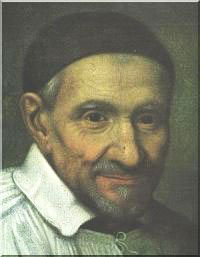 The French priest St. Vincent de Paul (1581-1660) organized works of charity, founded hospitals, and started two Roman Catholic religious orders.
The French priest St. Vincent de Paul (1581-1660) organized works of charity, founded hospitals, and started two Roman Catholic religious orders.
Vincent de Paul was born into a peasant family on April 24, 1581, in the village of Pouy in southwestern France. He became a priest at the age of 19, and would go on to found hospitals, charitable organizations and many other ministries and works that would serve the needs of the poor. With Louise de Marillac, a talented and sensitive friend, he started the first religious group of women dedicated entirely to works of charity outside the cloister, a group called the Daughters of Charity.
Vincent was a man of action rather than of theory. The religious spirit he communicated was simple, practical and straightforward. He looked to Christ as his leader and tried to translate the Gospel message into concrete results. He died on Sept. 27, 1660, and was canonized a saint in the Roman Catholic Church in 1737.
Words of Wisdom
from St. Vincent de Paul
“No matter what others say or do, even if the wicked succeed, do not be troubled: commit everything to God and put your trust in him.â€
“The most powerful weapon to conquer the devil is humility. For, as he does not know at all how to employ it, neither does he know how to defend himself from it.”
“But do you know what it is to labor in charity? It is to labor in God, for God is charity, and it is to labor for God purely and entirely; it is to do so in the grace of God.”
A “Great Hero of Charity”
As reported by Zenit, the Holy Father spoke of St. Vincent de Paul:
The Pope reflected on the Gospel reading from today’s Mass, which recounts the story of the rich man suffering torment, and the poor man Lazarus in the bosom of Abraham.The message of the parable, the Holy Father said, “points out that while we are in this world we must listen to the Lord who speaks to us through the Scriptures and live according to his will, because, after death, it will be too late to make amends.”
“So,” he explained, “this parable tells us two things: The first is that [God] loves the poor and lifts them up from their humiliation; the second is that our eternal destiny is
 conditioned by our attitude; it is up to us to follow the road to life that God has shown us, and this is the road of love, not understood as sentiment but as service to others in the charity of Christ.”
The Bishop of Rome called it a “happy coincidence” that Monday marks the feast of one of the Church’s great heroes of charity, St. Vincent de Paul, patron of Catholic charitable organizations.
“In the France of the 1600s, he touched with his own hand the great contrast between the richest and the poorest,” the Pope said. “[…] Driven by the love of Christ, Vincent de Paul knew how to organize stable forms of service to marginalized persons.”
In fact, the saint founded the first women’s congregation to live their consecration “‘in the world,’ in the midst of the people, with the sick and the needy,” he noted.
The Pontiff added, “Dear friends, only Love with a capital ‘L’ makes for true happiness!” – Zenit
Tags: catholic, catholic podcast, catholic prayer, cathollc spirituality, daughters of charity, st vincent de paul
This entry was posted on Tuesday, September 27th, 2011 at 6:52 am
You can follow any responses to this entry through the RSS 2.0 feed.

